- The Reasons why This Topic Has Been Chosen
- The Definition of the Topic
- Relevance to the Field of Psychology
- Mind-Body Problem and Cognitive Psychology
- The Mind-Body Problem and Learning
- Current Research Related to Mind-Body Problem
- Mind-Body Problem: Psychology and Biology
- Future Research Needs
- Conclusion
- Reference List
This presentation is aimed at discussing the following questions:
- Definitions and various interpretation of the mind-body problem;
- The relevance of this problem to various fields of psychology;
- Current research that is related to the mental activities and physical processes;
- Possible directions for future research.
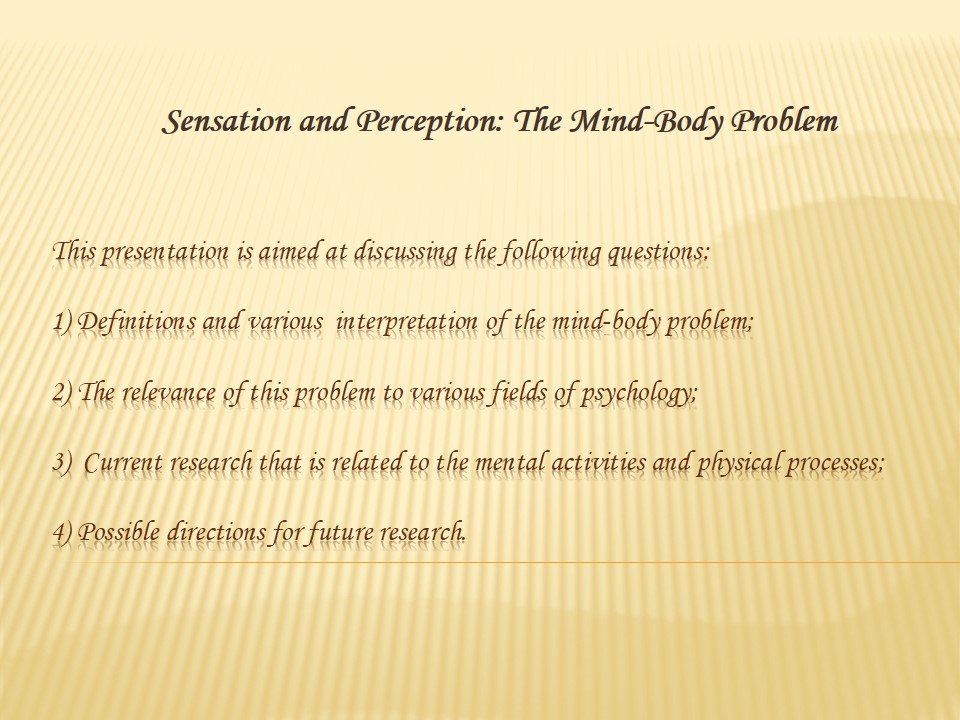
The Reasons why This Topic Has Been Chosen
I decided to focus on the mind-body problem for several reasons:
- It is related to many areas of study such as psychology, neuroscience, philosophy , ethics, or computer science;
- This problem can practical implications; for instance, the development of artificial intelligence.
- This question is still open to debate the relations between the physical body and mental life have not been fully examined. So, it is inherently interesting.
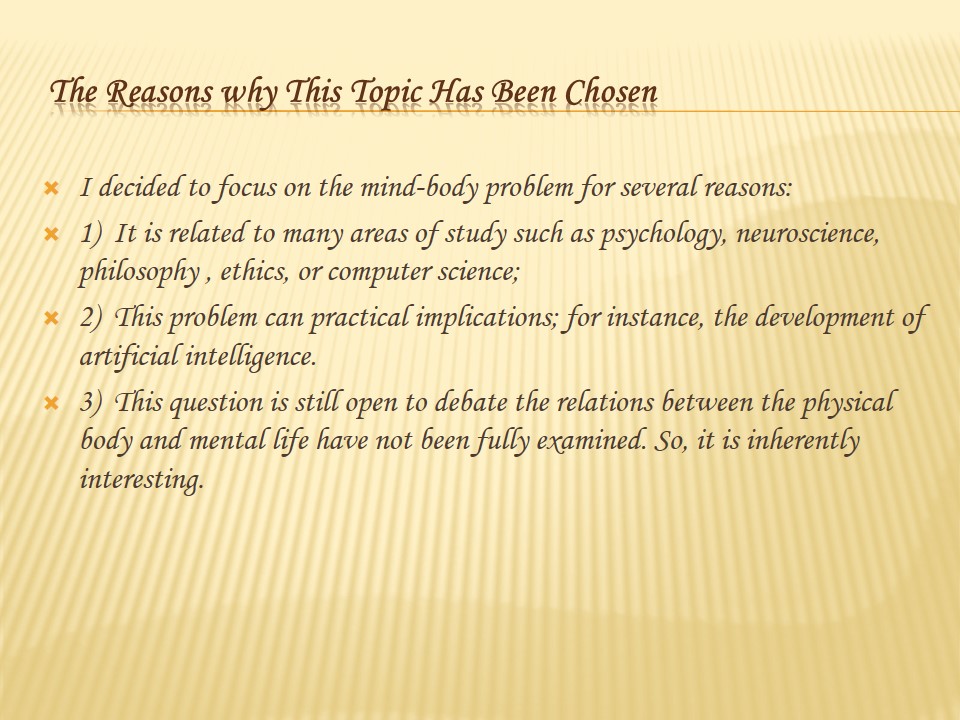
The Definition of the Topic
The mind-body problem can be formulated can be defined as a series of questions:
- What are the relations between mental life and physical body;
- What are the mechanisms that govern people’s sensations and perception;
- How do different structures of the brain affect mental events such as perception of sound or color;
- Is it always possible to trace a connection between physical life and mental events.
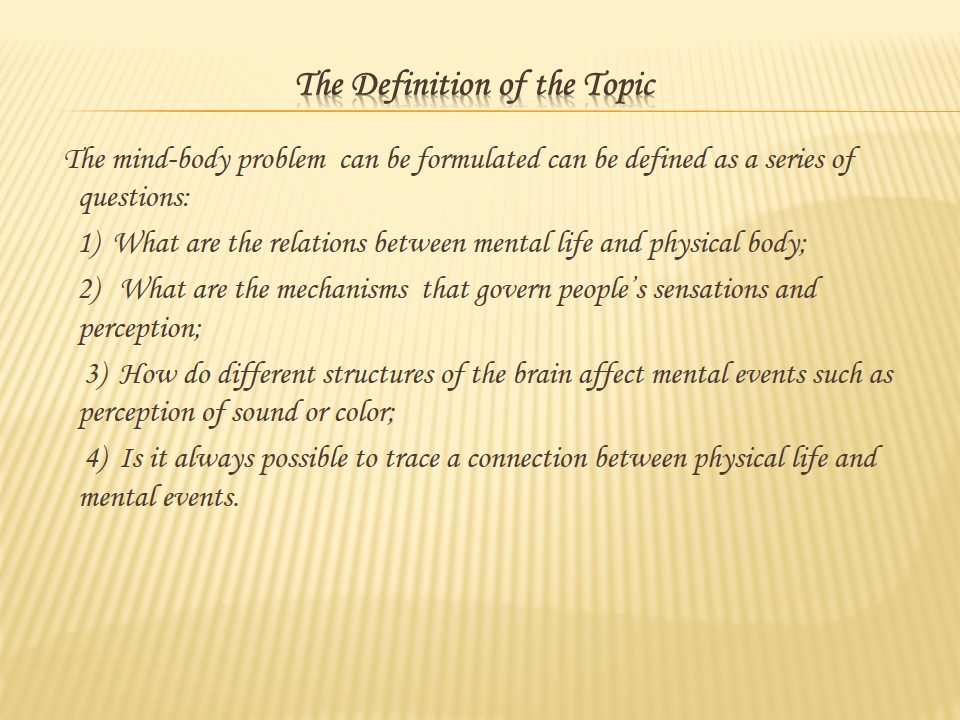
Relevance to the Field of Psychology
ÒMind-body problem is related different branches of psychology, for instance, one can mention clinical psychology and psychiatry since thise disciplines examine such issues:
- The distortion of perception such extremely low self-esteem or phobias,
- Delusions and hallucinations.
- Various personality disorders (Wiber, 2000, p. 249).
These are mental events and it is necessary to determine whether they have only biological or maybe there are certain social explanation. These questions are related to the mind-body problem. By answering them researchers can better help many patients.
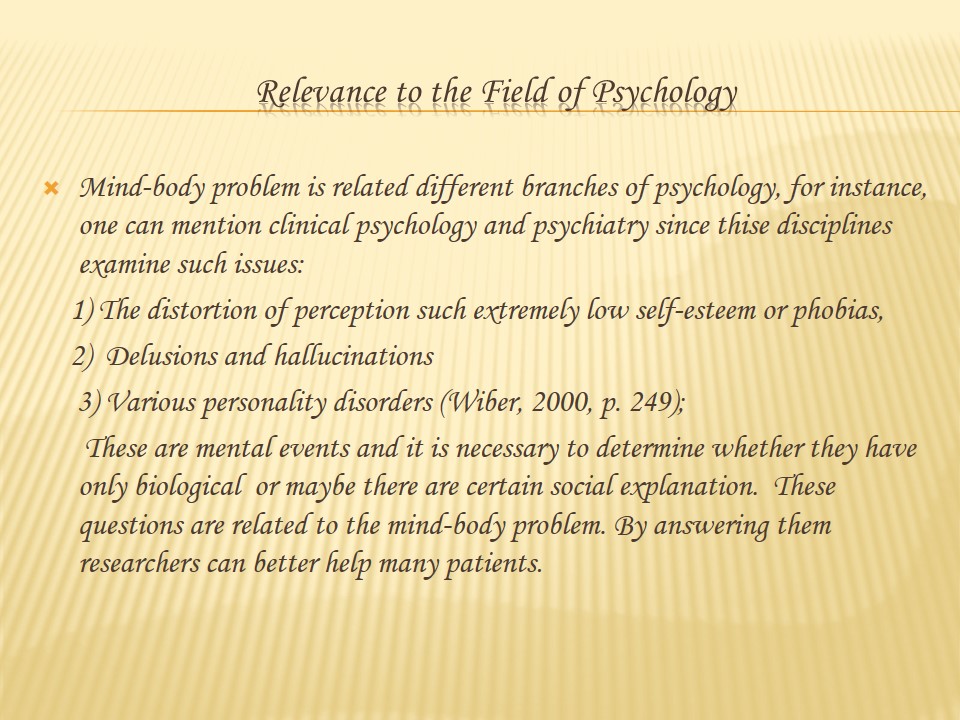
Mind-Body Problem and Cognitive Psychology
ÒThe relations between the mental events and physical reality are of great interest to cognitive psychologists. Here are some of the questions of that one may consider:
- The effects of different external stimuli on people’s perception;
- The interaction of various receptors and their effects on perception;
- Biological mechanisms that effect emotions and memory.
This issues essentially come down to the relations between the mind and the body.
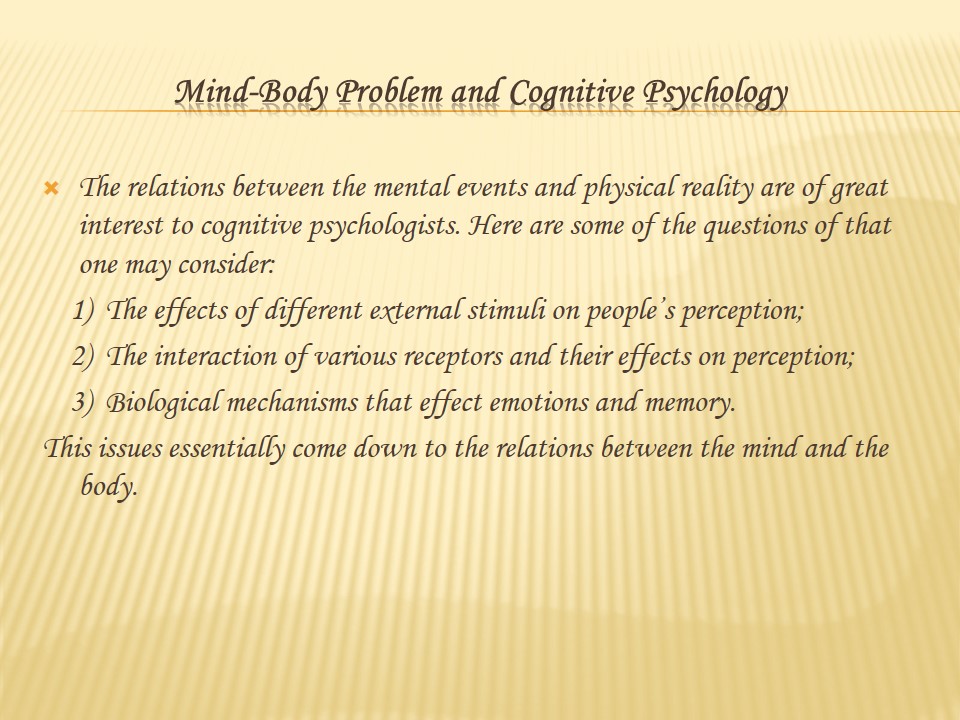
The Mind-Body Problem and Learning
The study of the mind-body problem and perception is related to educational psychology. Here are some of the questions that may be considered:
- The perception of information, its processing and retrieval.
- The development of skills;
- The brain structures that are responsible for perceiving information, learning or forgetting.
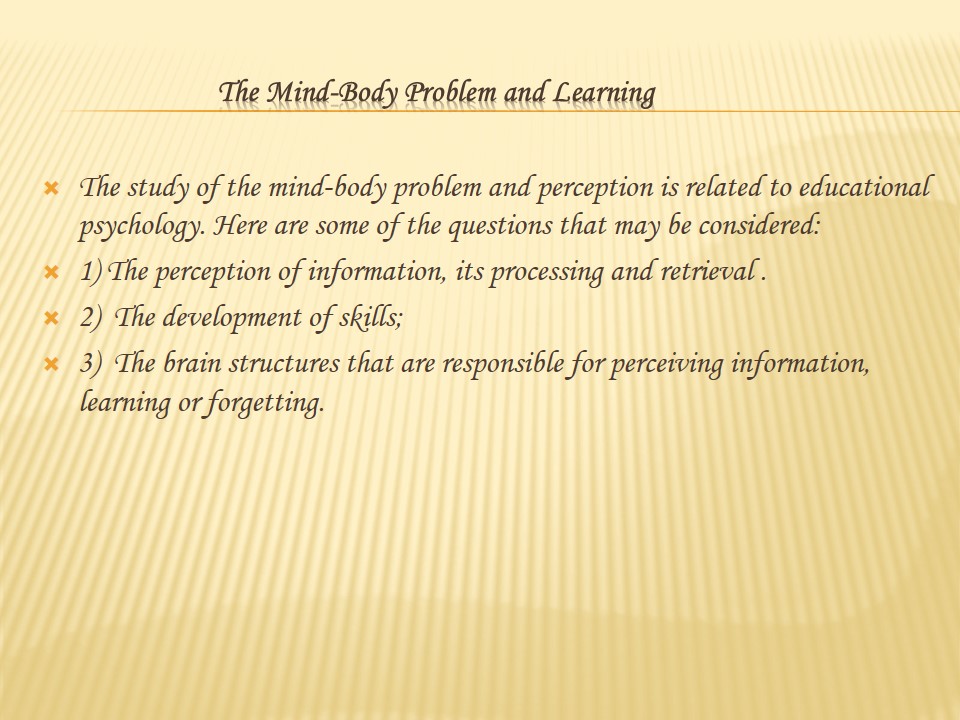
Current Research Related to Mind-Body Problem
The mind-body problem and perception play an important part in modern psychological studies. For instance one can mention the article written by Patrick Haggard . The author examines such questions as
- Mental states that physical that cause physical movement of the body. In other words, he is interested in the influence of the mind on the body (Haggard , 2001, p 113);
- The way in which different external signals are processed by the brain in order to generate an action;
- Different parts of the brain that are involved in the processing of the information and decision-taking.
- The author argues that mind-body problem requires a multi-disciplinary approach combining psychology, neuroscience, and philosophy.
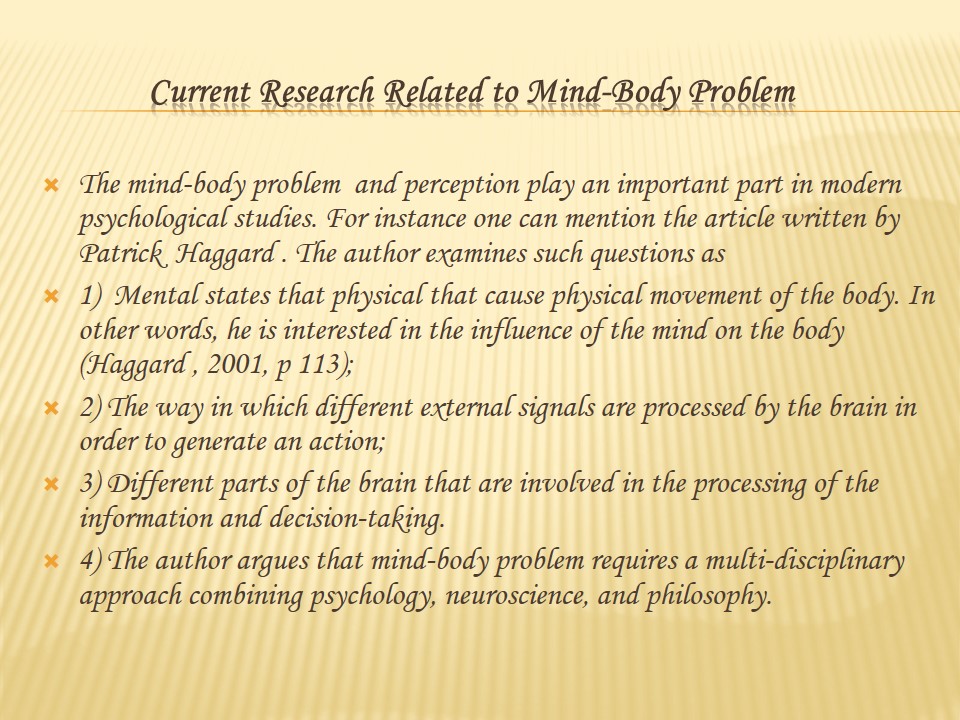
Mind-Body Problem: Psychology and Biology
The article written by William Meissner (2006) discusses the mind-body problem from psychological and biological perspectives.
- The author discusses the use of neuro-imaging while studying different forms of behavior;
- In particular, he speaks about the processing of external signals by different parts of the brain.
- Overall, the main point of this article is that the mind-body problem can be better understood by examining the specific functions of the brain and corresponding mental activities (Meissner, 2006, p. 97).
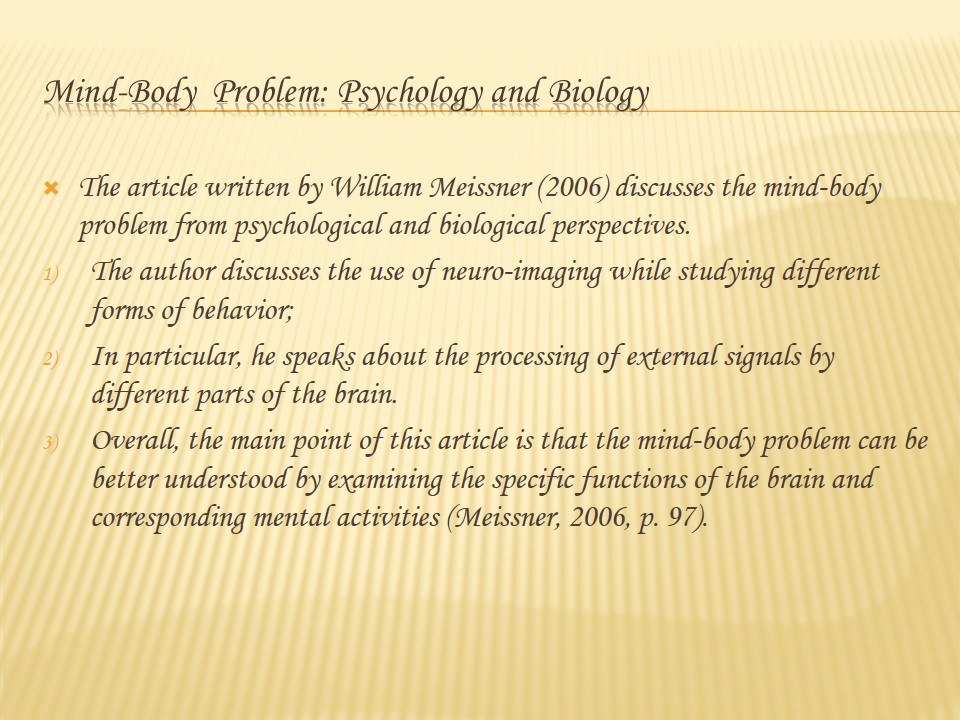
Future Research Needs
The mind-body problem gives rise to a variety of questions that researchers may be of great interest to researchers:
- The brain processes that are associated with the perception of various external signals like color, taste, or smell;
- The way in which brain can affect various physiological processes within the body.
- The connection between different types of external stimuli and responses of the body.
Overall, physiological discussion of the mind-body problem should be rely on the finding of biologists and neuroscientists.
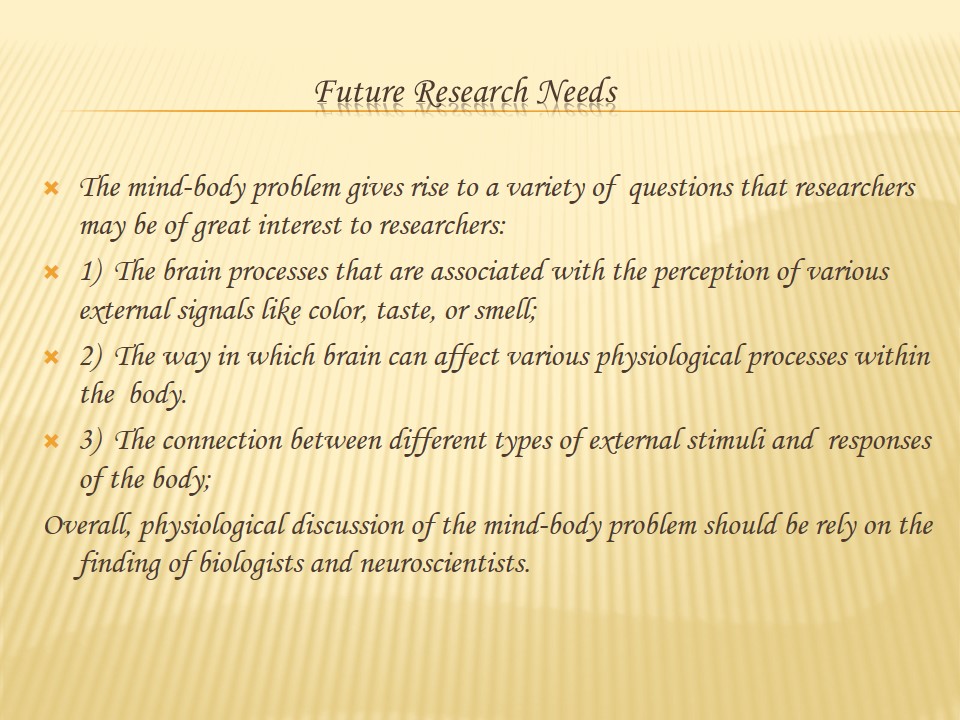
Conclusion
Overall, this discussion leads to several important conclusion, namely:
- The study of the mind-body problem should be rely on the methods of different disciplines like psychology, biology, or cognitive science;
- The mind-body problem is closely related with perception, behavior, and mental disorders;
- At the given moment, the majority of scholars concur that physical and mental activities should be seen as a unity since both mind and body are governed by the brain.
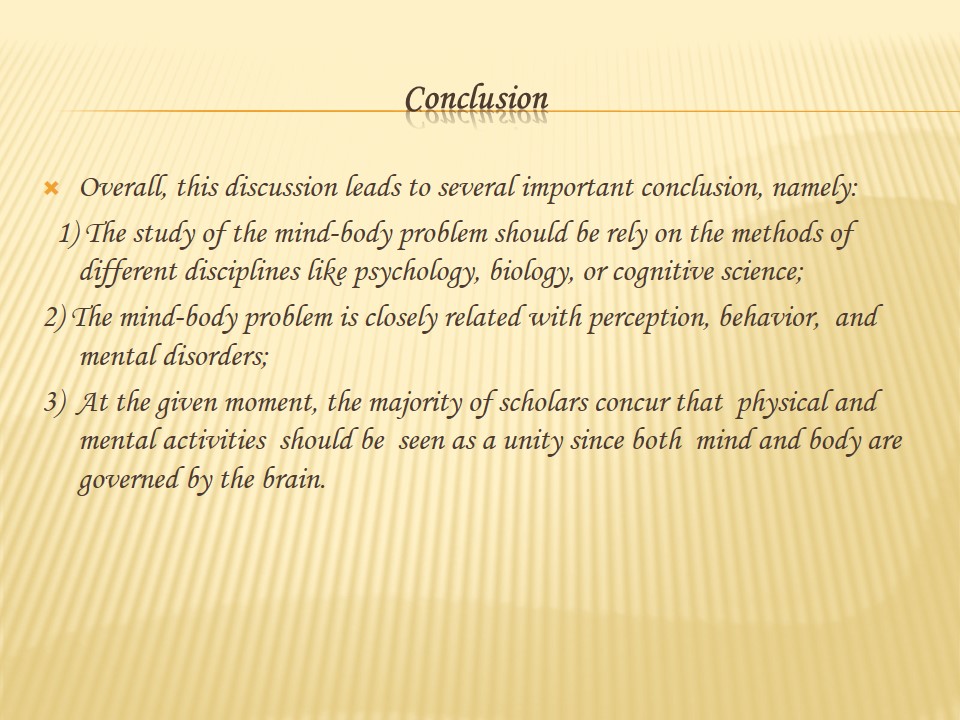
Reference List
Haggard, P. (2001). The psychology of action. British Journal Of Psychology, 92(1), 113 -128.
Meissner, W. W. (2006). The mind-brain relation and neuroscientific foundations: I. The problem and neuroscientific approaches. Bulletin Of The Menninger Clinic, 70(2), 87-101.
Wiber, K. (2000). Integral Psychology: Consciousness, Spirit, Psychology, Therapy. New York: Shambhala Publications.